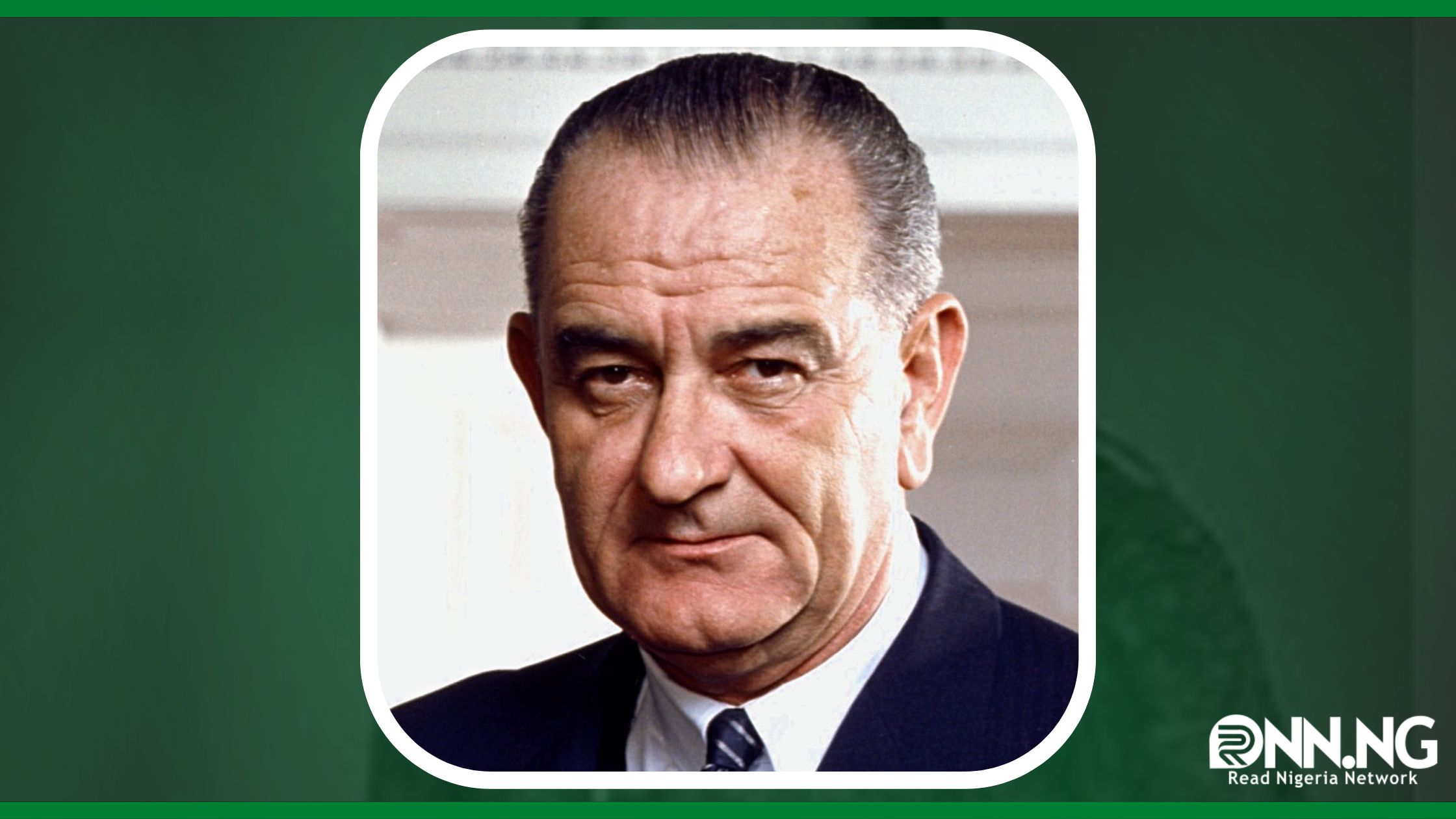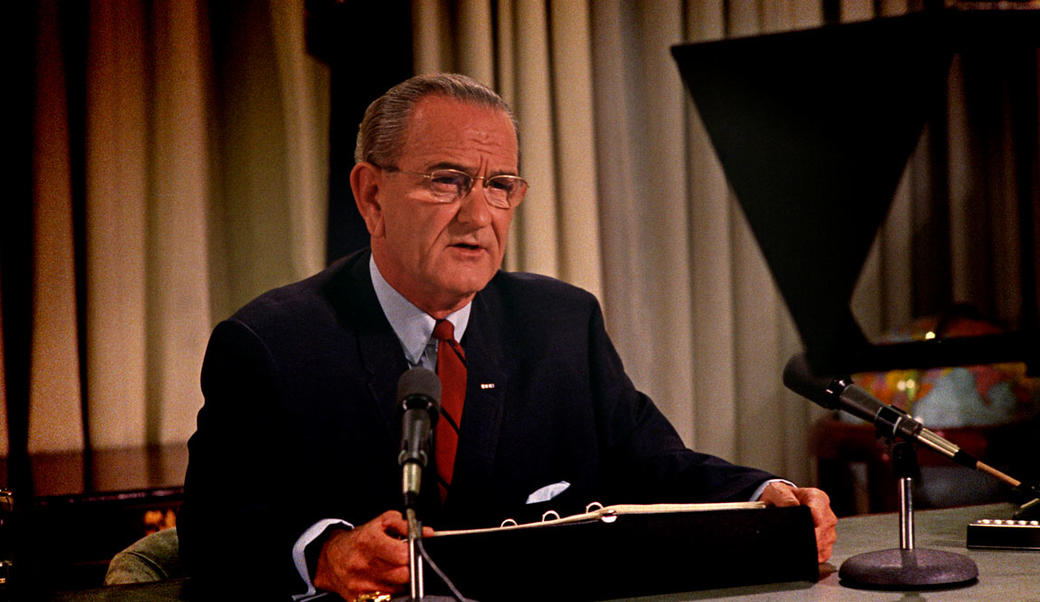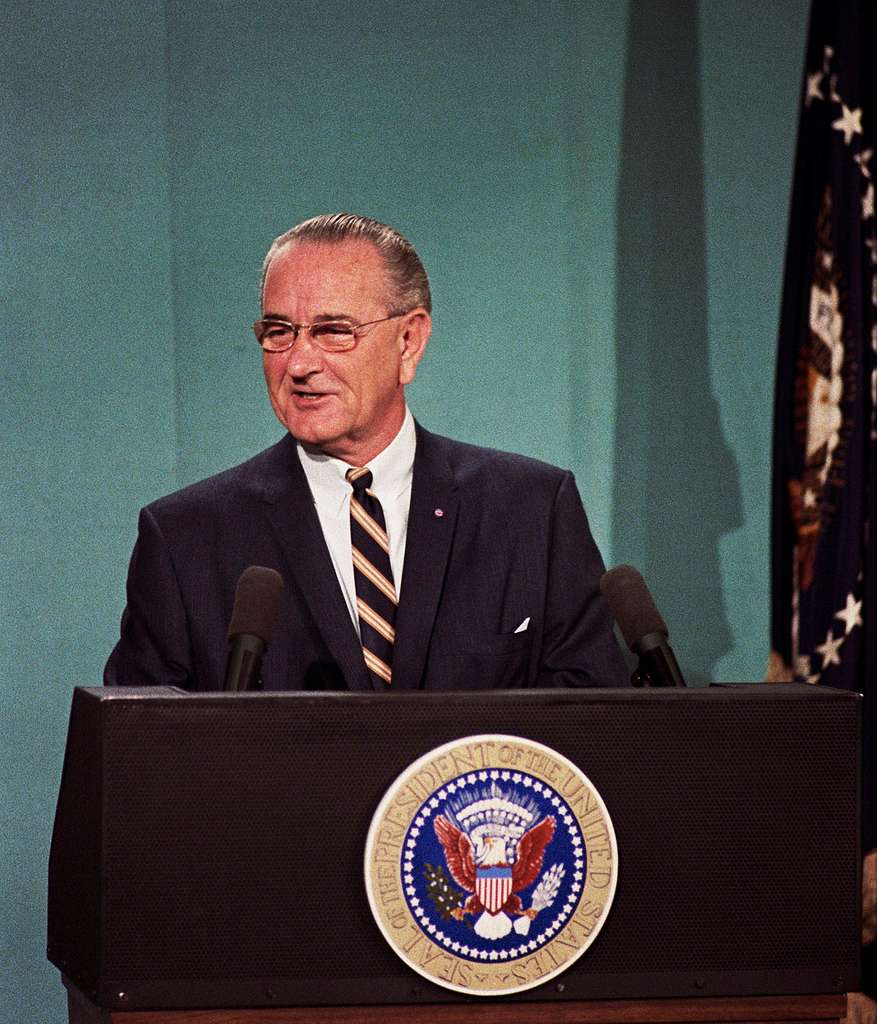Celebrity Biographies
Lyndon B. Johnson Biography And Net Worth

Who is Lyndon B. Johnson?
Lyndon B. Johnson was an American politician. Following the assassination of John F. Kennedy, Lyndon B. Johnson presided over the United States as the 36th president from 1963 to 1969. Prior to that, he spent periods in the US House and Senate as well as Kennedy’s vice president. Johnson was attacked for his management of racial relations and his part in expanding the Vietnam War during his administration, but he also contributed to the passage of numerous important laws enhancing civil rights, education, and health care.
RNN has provided detailed information about Lyndon B. Johnson in this article including his Biography, career, age, and Net Worth.

Lyndon B. Johnson Biography And Net Worth
Bio Data
| Name: | Lyndon Baines Johnson |
| Nickname: | L.B.J |
| Category: | Richest Politicians › Presidents |
| Net Worth: | $15 Million |
| Date of Birth: | Aug 27, 1908 |
| Place of Birth: | Stonewall |
| Age: | Aug 27, 1908 – Jan 22, 1973 (64 years old) |
| Gender: | Male |
| Height: | |
| Zodiac Sign: | Virgo |
| Nationality: | United States of America |
| Profession: | Teacher, Politician |
Biography
A political family from the area, Lyndon B. Johnson was born on August 27, 1908, in a farmhouse in Stonewall, Texas. He was the oldest of Rebekah and Samuel’s five children; his younger siblings were Sam, Rebekah, Josefa, and Lucia. Johnson’s father’s financial difficulties caused him to grow up in poverty. He received his education at Johnson City High School, where he participated in debate, public speaking, and baseball. Johnson attended Southwest Texas State Teachers College in the summer of 1924 under parental pressure to attend college after receiving his diploma.
However, he left school and relocated to Southern California a few weeks after his arrival. Johnson worked a variety of odd jobs there before going back to Texas and enrolling in SWTSTC once again. He edited the school newspaper and took part in debates there. Johnson earned a history degree and graduated in 1930. Later, he worked as a teacher at Sam Houston High School and Pearsall High School. Johnson studied at Georgetown University Law Center in 1934, but he dropped out after his first semester.

Lyndon B. Johnson Biography And Net Worth
Political Career
Johnson officially entered politics in 1931 when he was chosen to serve as the Texas-based representative Richard M. Kleberg’s legislative secretary. Kleberg had little interest in doing the routine tasks of his profession, so Johnson handled them in his place. The “Little Congress,” a group of congressional assistants, shortly voted him speaker. Johnson was chosen to lead the Texas National Youth Administration in 1935, serving in that capacity for two years. He was seen as a difficult, demanding employer who was driven by a passion for power, according to several.
US House of Representatives
Johnson ran a winning campaign in a 1937 special election for Texas’s 10th congressional district after veteran congressman James P. Buchanan passed away. He continued to serve until 1949 as a member of the US House of Representatives. Johnson sought to electrify rural regions in the 10th district and sat on the Naval Affairs Committee throughout his time in office.
US Senate
After Texas senator Morris Shepard, the incumbent, passed away in 1941, a special election was held. Governor W. Lee O’Daniel just barely defeated Johnson in the election. O’Daniel, who had a poor reputation while serving in the Senate, decided not to seek reelection in 1948. Johnson pounced to seize the opportunity and defeated former governor Coke Stevenson in the Democratic primary by only 87 votes. The outcome was highly contested since it was based on 200 forged votes that Jim Wells County officials discovered six days after the election. Johnson, though, won the case after being represented in court. He then defeated Jack Porter in the general election.
In his early years in the US Senate, Johnson looked at the effectiveness and expense of the military. He was selected as the Senate Majority Whip in 1951, and in 1953 he was named Democratic Minority Leader. Johnson rose to the position of Majority Leader in 1954 after winning reelection to the Senate. He became well-known for his skill at gathering intelligence and instilling fear in other senators while serving in that capacity. Johnson is notable for his contribution to the 1957 and 1960 Civil Rights Acts, the first civil rights legislation to pass Congress since Reconstruction in the late 1800s. He was elected to a third term in the Senate in 1960, but he was forced to leave when John F. Kennedy picked him to be his running mate.
US Vice President
Johnson entered the 1960 US presidential election late and was defeated by John F. Kennedy for the nomination. He ultimately replaced Kennedy as the vice president. Johnson was universally disliked by staffers in that position because of his abrasive demeanor. Kennedy made sure to keep him busy by designating him chairman of the National Aeronautics and Space Council and head of the President’s Committee on Equal Employment Opportunities.
US President
On November 22, 1963, a little over two hours after John F. Kennedy was killed in Dallas, Texas, Johnson took the oath of office as the 36th president of the United States. Five days after his “Let Us Continue” address, he created the Warren Commission to look into the circumstances surrounding Kennedy’s assassination. Johnson had major doubts about his ability to win the 1964 presidential election on his own, but he went on to defeat Barry Goldwater by a wide margin, earning the highest percentage of the popular vote won by a presidential candidate since 1820.
Johnson had a comprehensive domestic policy program throughout his administration that was centered on advancing civil rights, public services, education, and health care. He came up with the phrase “Great Society” to describe these domestic initiatives. The Civil Rights Act of 1964, which prohibited discrimination based on race, color, sex, religion, and national origin and abolished racial segregation in public places like schools, was one of Johnson’s biggest achievements. Johnson subsequently signed the Civil Rights Act of 1968, which expanded on earlier civil rights, as well as the Voting Rights Act of 1965, which prohibited discrimination in voting.
Johnson signed the Social Security Amendments of 1965, which resulted in the development of Medicare and Medicaid, among his other noteworthy accomplishments as president. He also passed the Higher Education Act of 1965, which focused on funding for students from lower-income families, and the Immigration and Nationality Act of 1965 during the same year. Johnson also contributed significantly to the Apollo program, public radio, and the arts. Johnson introduced a new age of contemporary liberalism in the US, but as he fought to quell domestic racial unrest and intensify the Vietnam War abroad in the 1960s, he lost support.
Post-Presidency
Johnson moved to his ranch in Stonewall, Texas after leaving the White House in 1969 and started writing his memoirs there. His debut book was titled “The Choices We Face,” and his second was titled “The Vantage Point: Perspectives of the Presidency 1963-1969.” Johnson remained unnoticed throughout this period. Later, a portion of his property was included in the Lyndon B. Johnson National Historical Park.
Net Worth
Lyndon B. Johnson was an American politician who had a net worth of $15 million at the time of his death in 1973.
Personal Life
Johnson wed Lady Bird-famous Claudia Taylor in the latter half of 1934. They have two children, Lynda and Luci, together. Johnson had multiple indiscretions while still married, most famously with Alice Marsh.
Death
After a near-fatal heart attack in the summer of 1955, Johnson, a lifelong smoker, immediately quit. After taking office, Johnson resumed smoking and developed angina. In 1972, Johnson suffered another heart attack and required a portable oxygen tank. By early 1973, Johnson had suffered three heart attacks and passed away. He was given a state funeral and interred in his family’s private cemetery.
FAQs
Who is Lyndon B. Johnson?
Lyndon B. Johnson was an American politician. Following the assassination of John F. Kennedy, Lyndon B. Johnson presided over the United States as the 36th president from 1963 to 1969.
What was Lyndon B. Johnson’s net worth?
Lyndon B. Johnson was an American politician who had a net worth of $15 million at the time of his death in 1973.
How old was LBJ when he died?
64 years (1908–1973)
More Articles on RNN
James Leprino Biography and Net Worth
Esther Grether Biography and Net Worth
